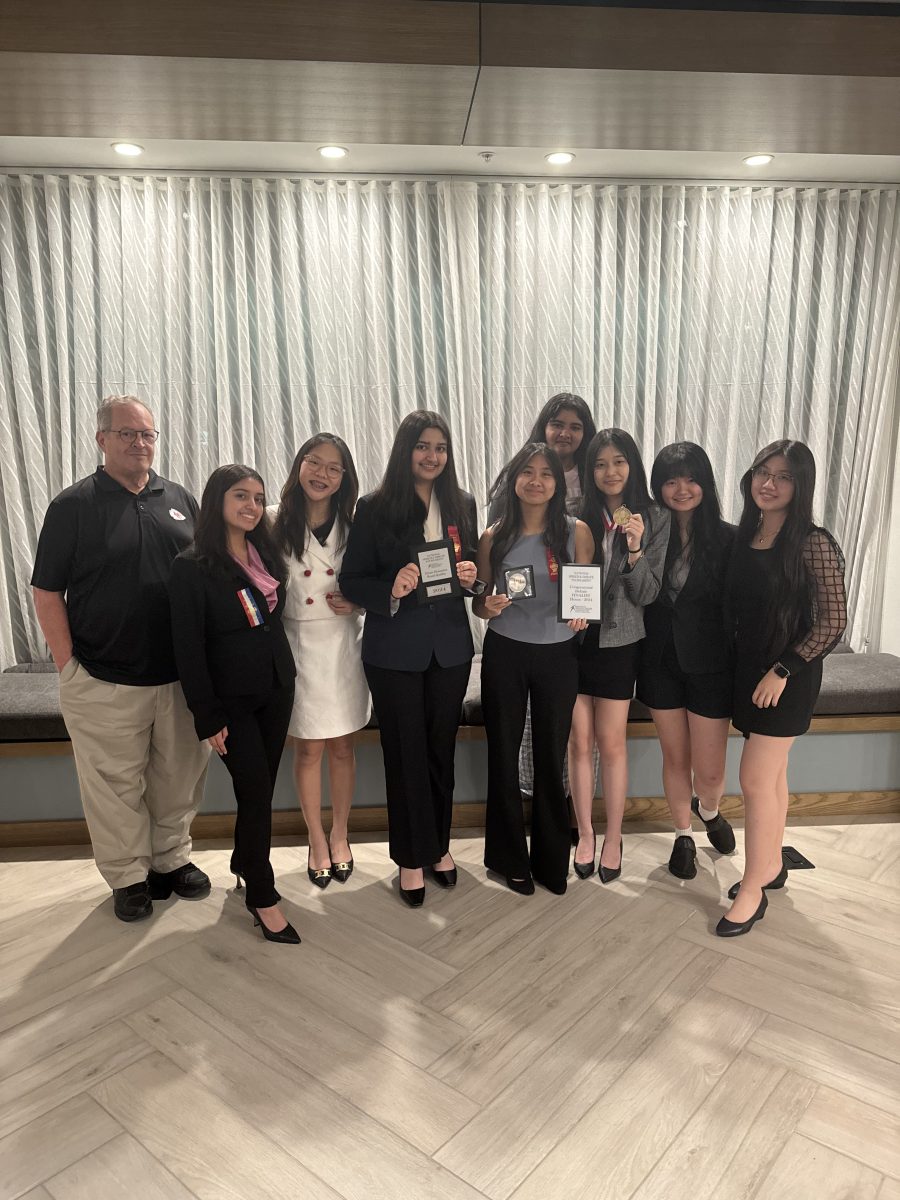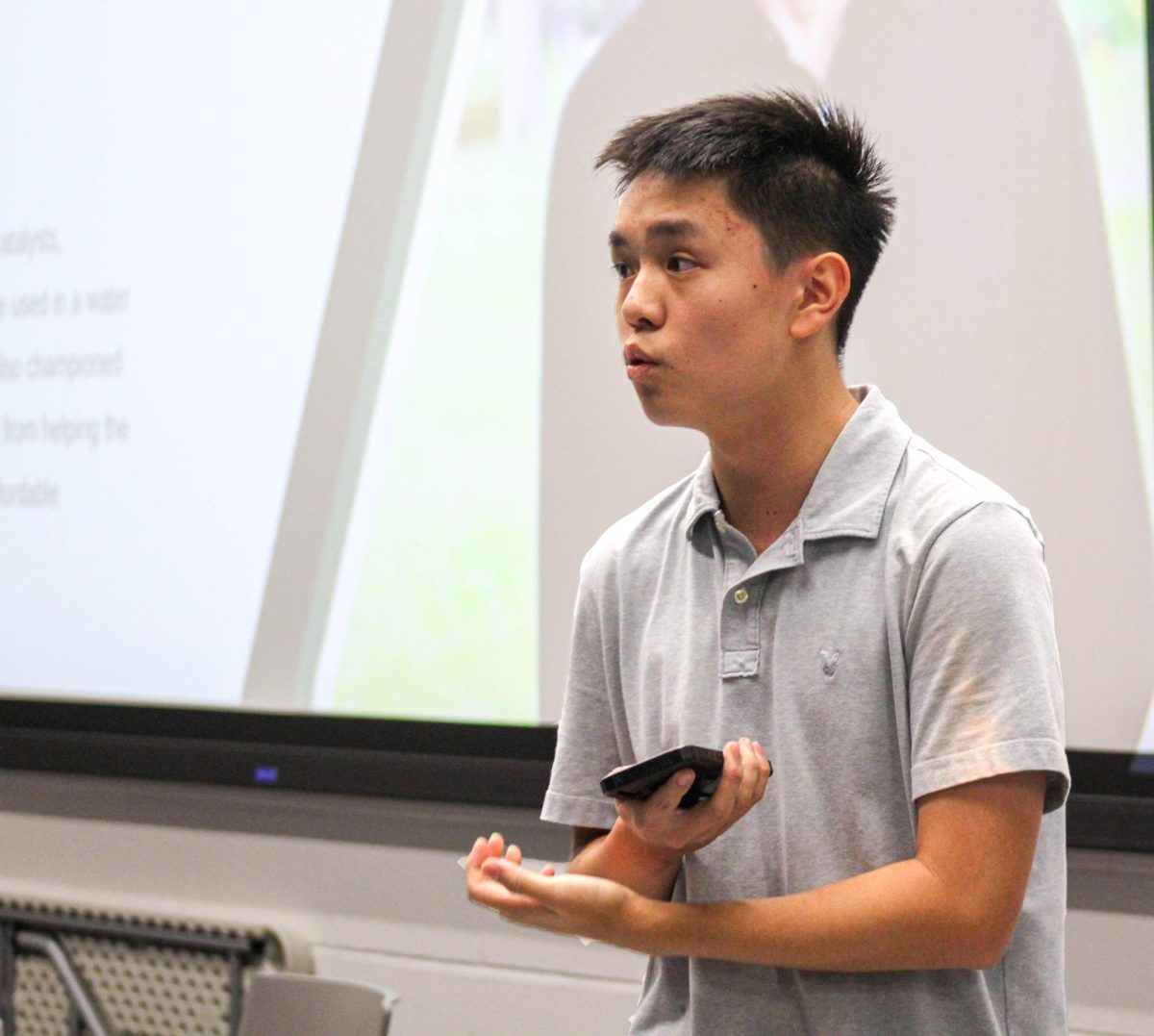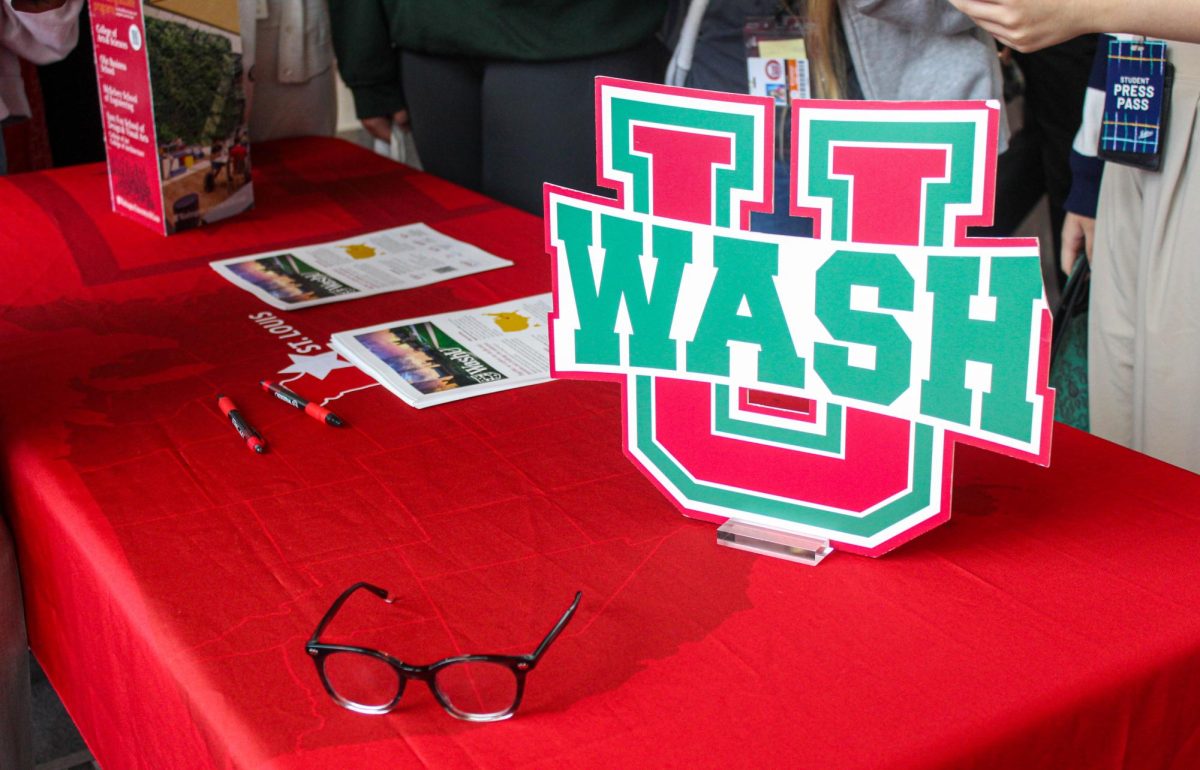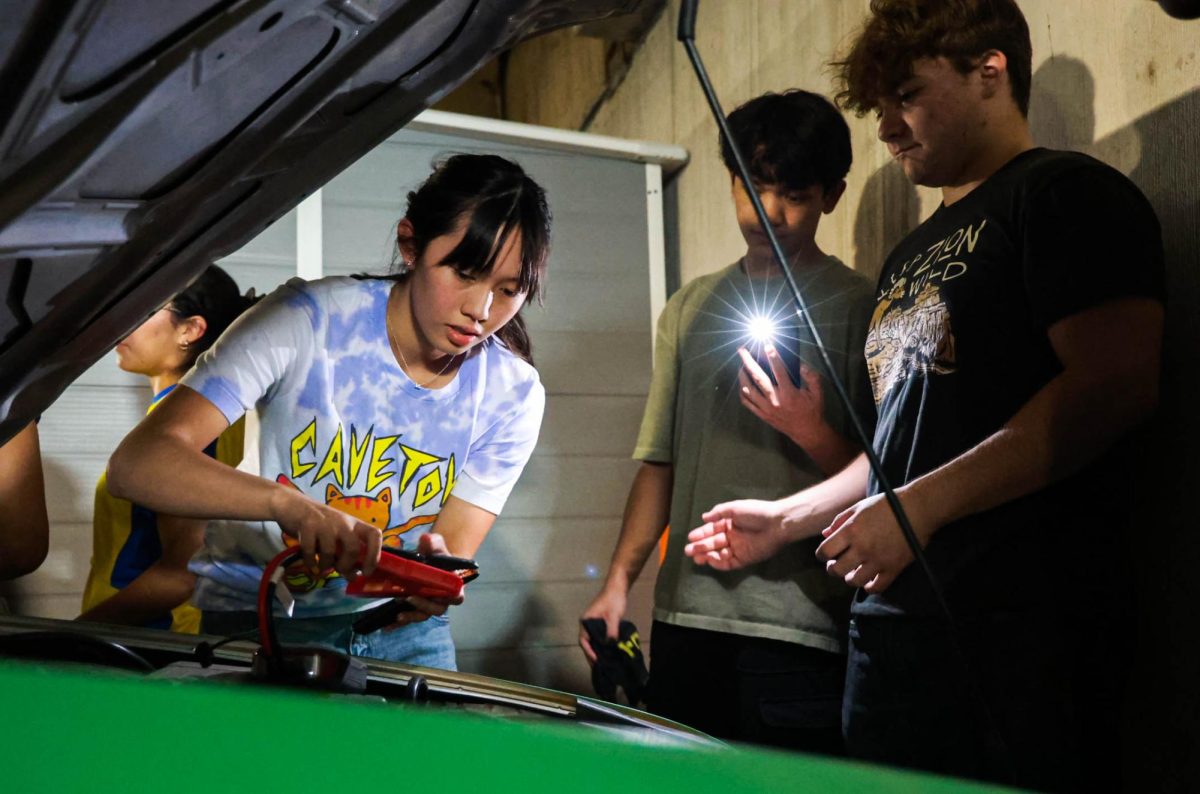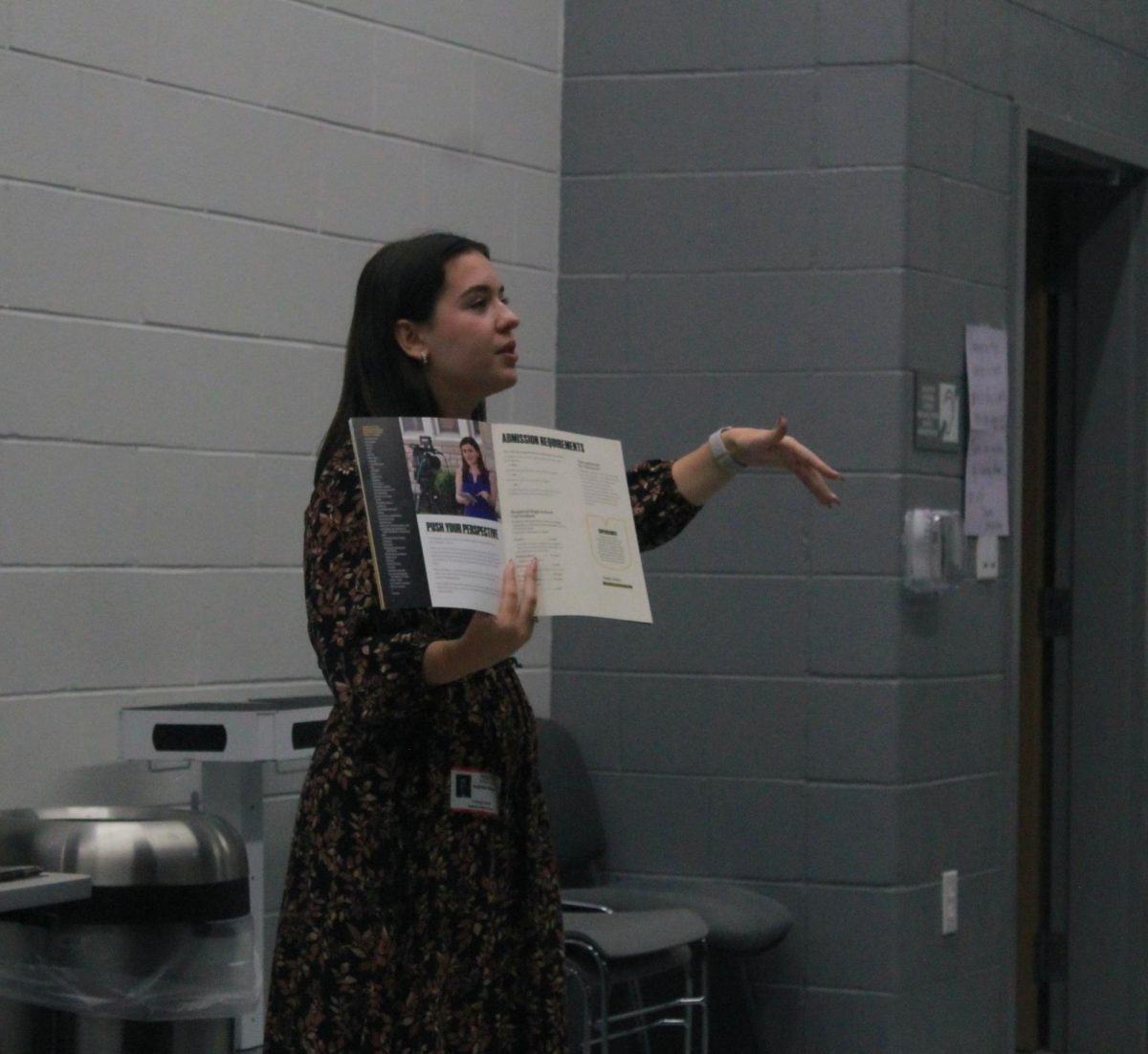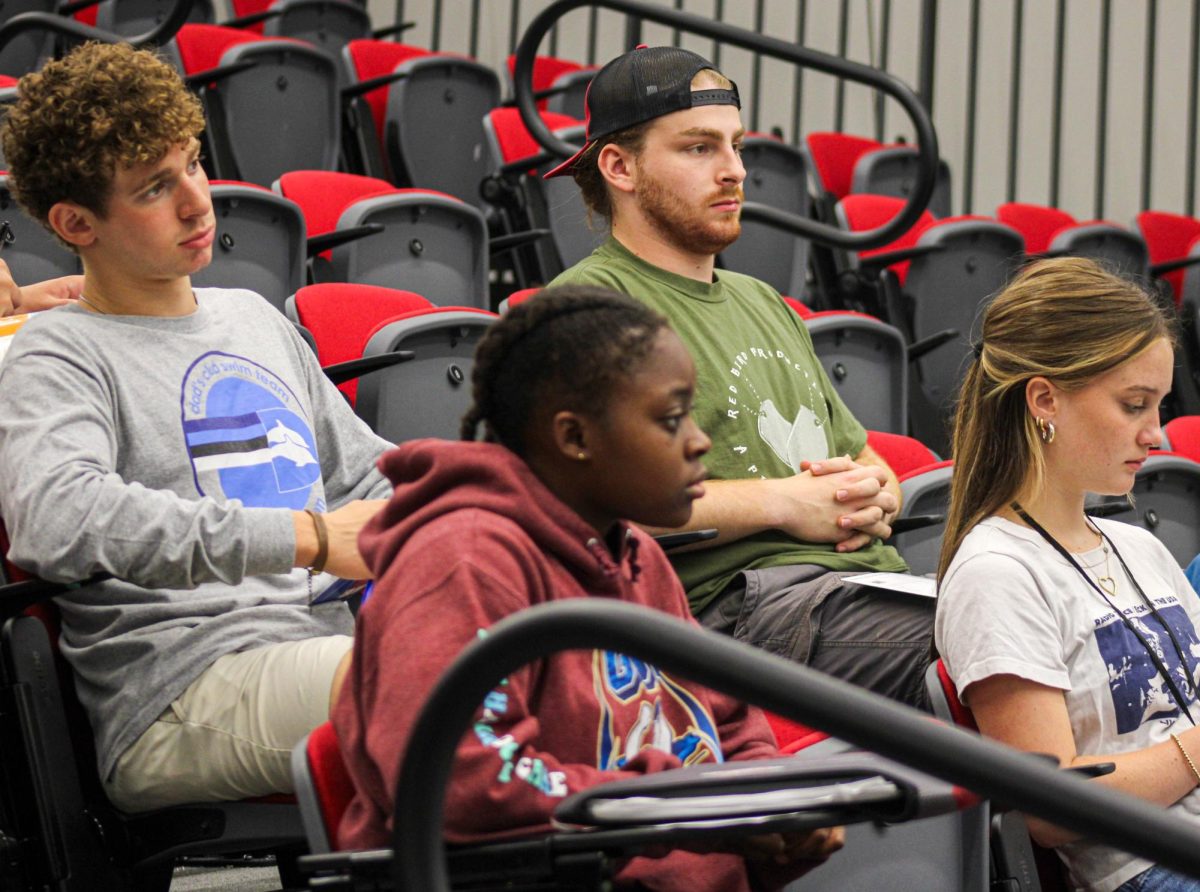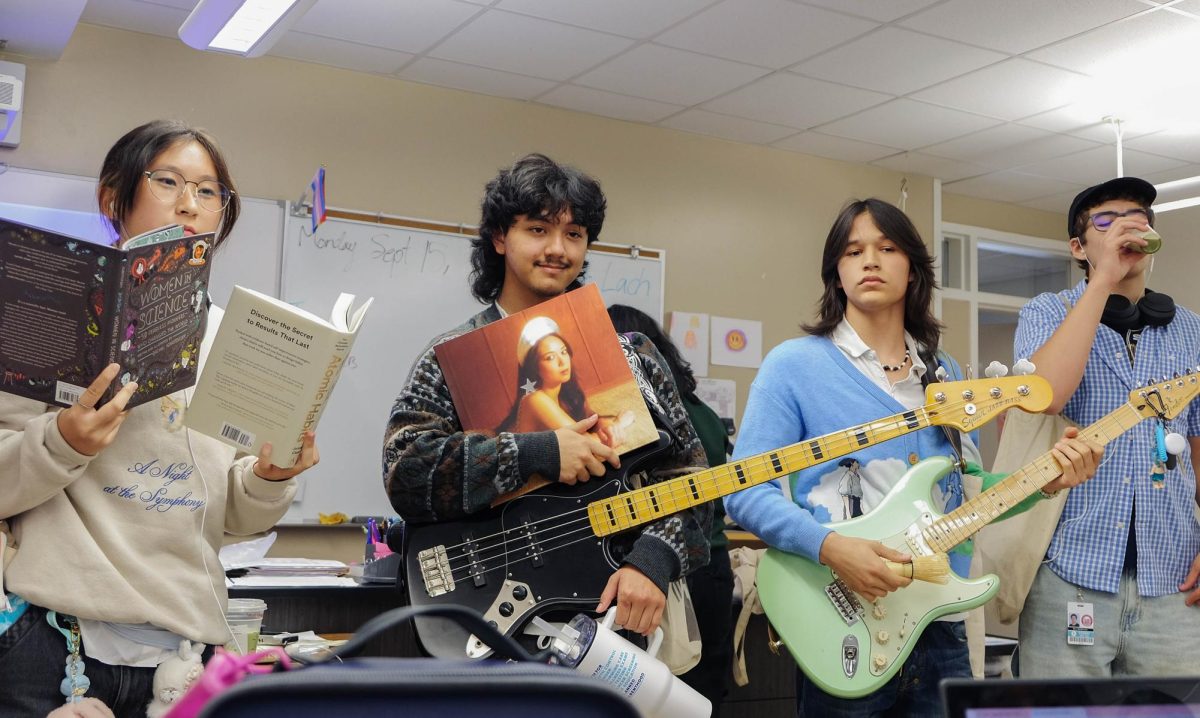*** Disclaimer: This event took place over the summer, then sophomores are now juniors.
Sophomore Samantha Tran advanced to the final round of congressional debate in the 2024 National Speech and Debate Tournament in Des Moines, Iowa from June 16-21, after qualifying in the South Texas District Tournament.
Tran was one of seven debaters who competed at the tournament and one of three who advanced, with sophomores Catherine Xue and Alia Hassan advancing to the semifinal and quarterfinal rounds of congressional debate, respectively.
“My most memorable moment was when we arrived at our hotel after competing that day, and I was on a call with my friend and [the friend] screamed, ‘Oh my gosh Samantha you made it to finals,’” Tran said.
For Tran, the competition could be summed up into two words: unpredictable and exhausting.
“To debate for hours on end truly takes a toll on a person’s mental health and physical well-being,” Tran said.
Although it was Bellaire Debate’s 66th appearance at nationals, it was the first time that six sophomores qualified.
“I mean, [the sophomores qualifying is] phenomenal,” former Bellaire debate coach Jay Stubbs said. “I can’t stress [it] enough, very few squads qualify freshmen or sophomores to nationals.”
Tran said that while preparing for the tournament, the stress was “intense.”
“It brought back my memories of nationals with the experienced team, but this time I stood alongside [Hassan and Xue] who were just like me—nervous and uncertain about the future,” Tran said.
More than 1,500 schools with 6,700 debaters competed at the tournament, and the debate team competed in four events: congressional debate, public forum, informative speaking and extemporaneous debate.
Stubbs gave up “every single afternoon that he had” to help the qualifiers prepare for nationals. According to sophomore Joy Xia, Stubbs was “the first to answer any call that you had, if you were trying to get extra help, trying to do practice with him, if you had any questions.”
Congressional Debate
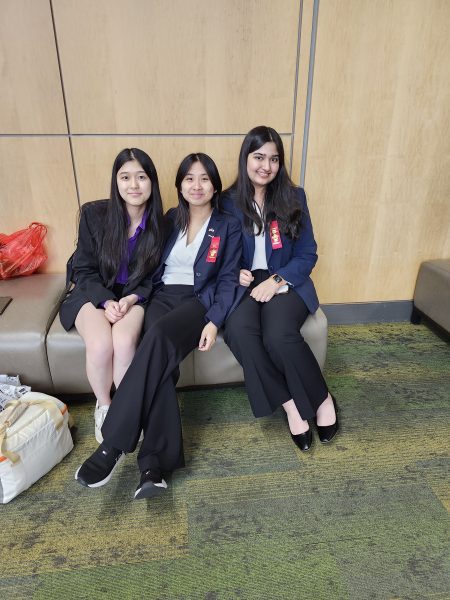
Congressional debate is a simulation of the actual US legislature, where a series of bills and resolutions are debated to either pass or fail.
“Congress preparation for nationals is most intensive because there are close to 40 topics that we cover,” Stubbs said.
Congressional debaters met after school every day in May for “Congress bootcamp” to discuss two new topics and give speeches on those respective topics the next day.
“I really liked the work ethic of the people who were going, especially the Congress girls,” Stubbs said. “[They] did a fantastic job with our Congress bootcamp. So I was very pleased.”
When Tran realized she advanced to the final round, she ‘dropped onto the ground in the parking lot, crying.’
“Mr. Stubbs’ face was priceless. He looked shocked [at] what I just told him,” Tran said. “Alia was comforting me and crying as well. I cherish that moment.”
The final round of nationals was the “most important round” of Tran’s debate career. The final round of every event is live streamed for people around the world to watch. Tran’s teammates, Hassan, Xue, junior and extemporaneous debater Sydney Martinez and Tran’s mom were in the audience, watching the round live.
“The stress levels are extremely high, because when you’ve worked so hard to get there, a single moment can mess [everything] up,” Tran said. “I honestly couldn’t sleep the night before.”
Tran was nervous at the thought of her coach spectating her in the final round, and asked Stubbs not to watch.
“Even though she didn’t want me watching the live stream, I was watching [it],” Stubbs said. “The final round is stressful for the coach, because your kid [goes] in there and there’s nothing else you can do. You [just] wait.”
The thought of being streamed online struck a deep fear within Tran that never waned during the round.
“My nerves got the best of me,” Tran said. “I delivered one of my weakest performances that day, but it doesn’t reflect my true abilities as a debater.”
For Stubbs, Tran’s performance in the final round of nationals is still something to be proud of.
“It doesn’t define a career,” Stubbs said. “I’ve seen her do way too many speeches to know what she’s capable of.”
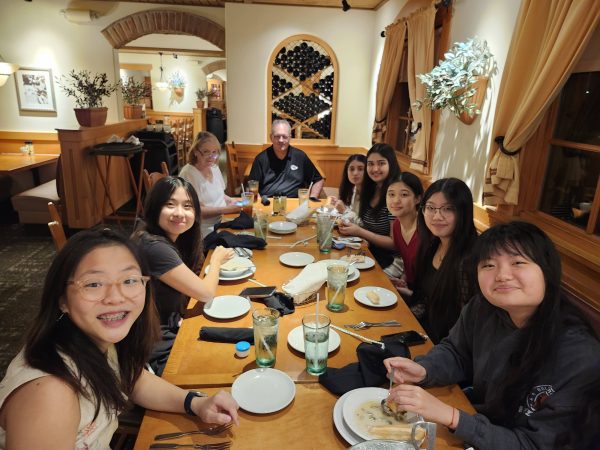
Public Forum
Xia and sophomore Anastasia Shih competed in public forum, a two-on-two debate on a current-event topic. The 2024 public-forum topic for nationals was the US establishing a bilateral trade agreement with the EU.
In comparison to the congress debaters, the public forum team “felt [kind of] lonely,” according to Xia. “It was really stressful because out of all the Bellaire teams, we were the only public forum team that made it to nationals and the only ones that were prepping for it.”
In the days leading up to the tournament, Shih and Xia “ramped up their practice.”
“I think [even] the night before the tournament, we were prepping still,” Shih said. “I guess [it’s] true when they say that ‘preparation never ends,’ because the night before, we were still working.”
Xia “felt the pressure” on Monday morning, the first day of competition.
“I was so scared [to compete],” Xia said. “Genuinely, I think my legs were shaking. They literally hid the [competitors’] names, so we couldn’t see who we were debating until we actually got to the room.”
Shih and Xia each knew “the stakes were high for every single round.” Shih recalls moments of tension, as only the top 20 percent of the 269 public forum teams would advance to the elimination rounds.
“There were definitely tense moments,” Shih said. “It was really stressful if we were going against a team that’s unexpectedly good or [had] arguments that we haven’t heard before. We tried our best to work it out during [the] round and work out the tense moments afterwards.”
Shih’s biggest regret was being discouraged during their last few preliminary rounds before knowing any results.
“I regret feeling defeated in our last few rounds, because we didn’t really know what to expect,” Shih said. “If we’d gone into [those] rounds with a better mindset, we probably could have picked up more ballots. I think that would have been the difference between advancing [to the elimination rounds] and not advancing.”
Shih and Xia were one ballot away from advancing, meaning that if one more judge had voted for their case, they would have moved on to the elimination rounds. According to Shih, it was “just really disappointing.”
“We didn’t advance as far as we’d hoped to,” Shih said. “[But], that’s helped me see that even if you don’t always get the outcome you expected, you can still be happy you’ve made it to that level.”
Although Shih and Xia did not advance, Stubbs is proud of their performance.
“The preparation that we accomplished for kids that were going for their first time, with no more experience in the event than they had, [and] being only one ballot away from breaking wasn’t a bad thing,” Stubbs said.
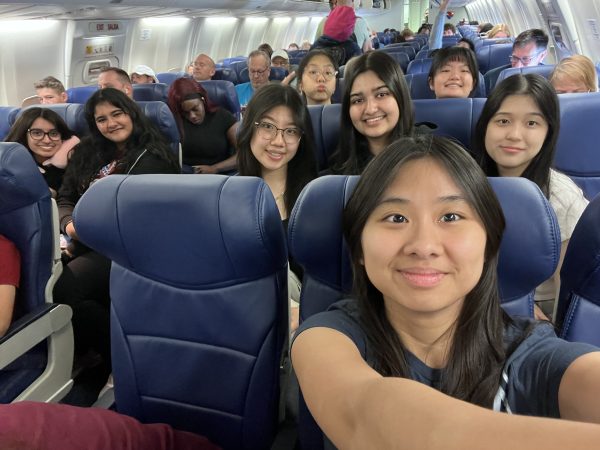
Informative Speaking
The 2023-2024 school year was the first year the debate team tackled informative speaking, and sophomore Eliza Teo qualified for nationals.
In informative speaking, a student writes and presents a 10-minute, memorized speech with poster boards to inform their audience on a topic of their choosing.
“Preparing was seeing if there was anything we wanted to update because, [Teo’s speech] had been done for a long time,” Stubbs said.
Teo wrote her speech over the summer in 2023 and used that speech for local, state, and national-circuit tournaments. She spent two weeks perfecting her speech for nationals.
Teo said that preparing was the most difficult for her.
“I feel like my coach and I [had] very different mindsets, and that didn’t really align with my values [and] how I would prefer on practicing,” Teo said. “And [while competing] expressing myself more, enunciating better, that was one of the hardest points.”
Although Teo had presented her speech numerous times at various tournaments throughout the year, it was “pretty nerve wracking.”
“One thing [that I found difficult] was just going fully out,” Teo said. “I definitely had to push my limits on being funnier, louder, and more energetic all the time.”
Looking back, Teo’s biggest regret was a decision she had made almost an entire year prior.
“A major regret [I have] is my topic. Most of the feedback I got was to choose a very specific topic,” Teo said. “I chose a [broad topic] which was the five senses and didn’t go [as in depth].”
Although Teo didn’t advance past the preliminary rounds, she looks back on nationals fondly.
“I was very grateful to be around so many wonderful people,” Teo said. “It was a great learning opportunity.”
Extemporaneous Debate
Freshman Areesha Memon and Martinez competed in extemporaneous debate, a one-on-one format where debaters are presented a resolution and have 30 minutes to independently research and prepare a case for the round.
“[Competing in extemp debate] was super exciting, but also terrifying because it felt like all eyes were on me,” Martinez said.
Unlike the other events that the debaters competed in, where one had to qualify at the South Texas District Tournament, Martinez and Memon competed in a supplemental event, where Stubbs could select any two students to compete.
“I felt honored to be chosen, but the pressure was on,” Martinez said. “I had to do a lot of practice rounds [to learn] a format I wasn’t used to.”
Memon found the transition to extemporaneous debate “difficult,” as competitors must quickly research and write down what they find in “random, little blurbs.”
Martinez and Memon competed in extemporaneous debate for the first time. For Memon, extemporaneous debate was “really difficult, but a good learning experience.”
“I learned different perspectives for [various] topics that I wouldn’t usually think of because we couldn’t choose the sides [that] we wanted to take,” Memon said. “So, that’s great.”
Martinez and Memon did not start competing until Wednesday, so they did multiple practice rounds in their hotel rooms.
“Prep time is the key difference between congress [Martinez’s main event during the season] and extemp debate,” Martinez said. “[In extemp debate] you only get 30 minutes to prepare a case and are assigned a side beforehand, whereas in Congress you’re given the docket way ahead of time and [can] choose what side [to prepare].”
For Martinez, her biggest regret had nothing to do with the competition, but the memories she made while there.
“One of my biggest regrets is not taking the time to truly enjoy my moments with my teammates,” Martinez said. “I became so focused on the outcome that I didn’t fully appreciate the experiences I had. Looking back, I realize those moments with my teammates—whether it was sharing laughs, supporting each other, or simply enjoying downtime—were just as valuable as nationals itself.”
The End of an Era
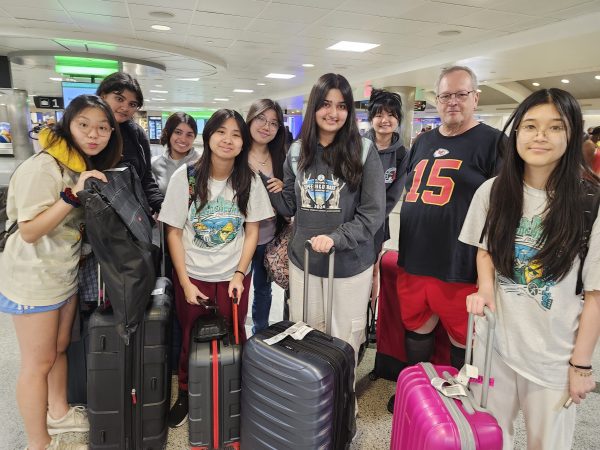
After 25 years at Bellaire High School, the national tournament was the last Stubbs would attend as the debate coach.
“I knew for me that [nationals] was it,” Stubbs said. “My personal thought was, ‘I’m leaving nothing on the field. You’ll get my full effort not holding anything back. And let’s make this a great one.’ [It’s] honestly the highlight of my year, when we have a group of kids operating at that high of a level and still being excited about it.”
Although it was the end of an era for Stubbs, he looks back on his career at Bellaire fondly.
“I had the best seat in the house watching [the debaters] grow, learn, and excel,” Stubbs said. “[The debaters] lived it, but I got to sit there and watch it.”
Looking Ahead
Isaac Chao, former Heights High School debate coach, took over for Stubbs as the new debate coach. He is also the AP Research and Communication Applications teacher.
Chao is looking forward to continuing Bellaire debate’s successful 70-year legacy.
“Bellaire Debate has a long history as one of the longest-running programs in the district,” Chao said. “There’s a ton of talent in the program. We have a number of students who are very intelligent, and [I am] excited to grow their academic and competitive potential in the activity.”


